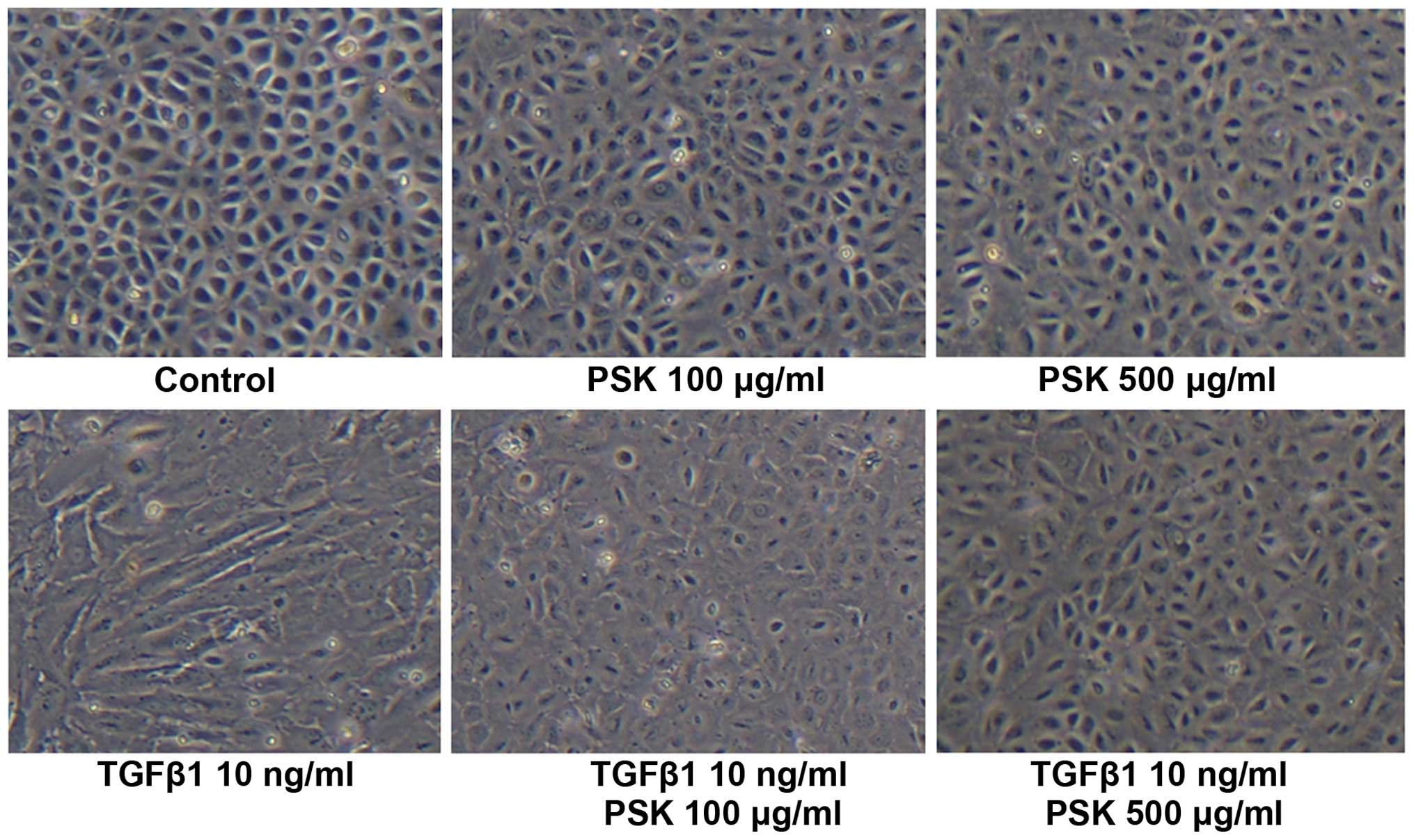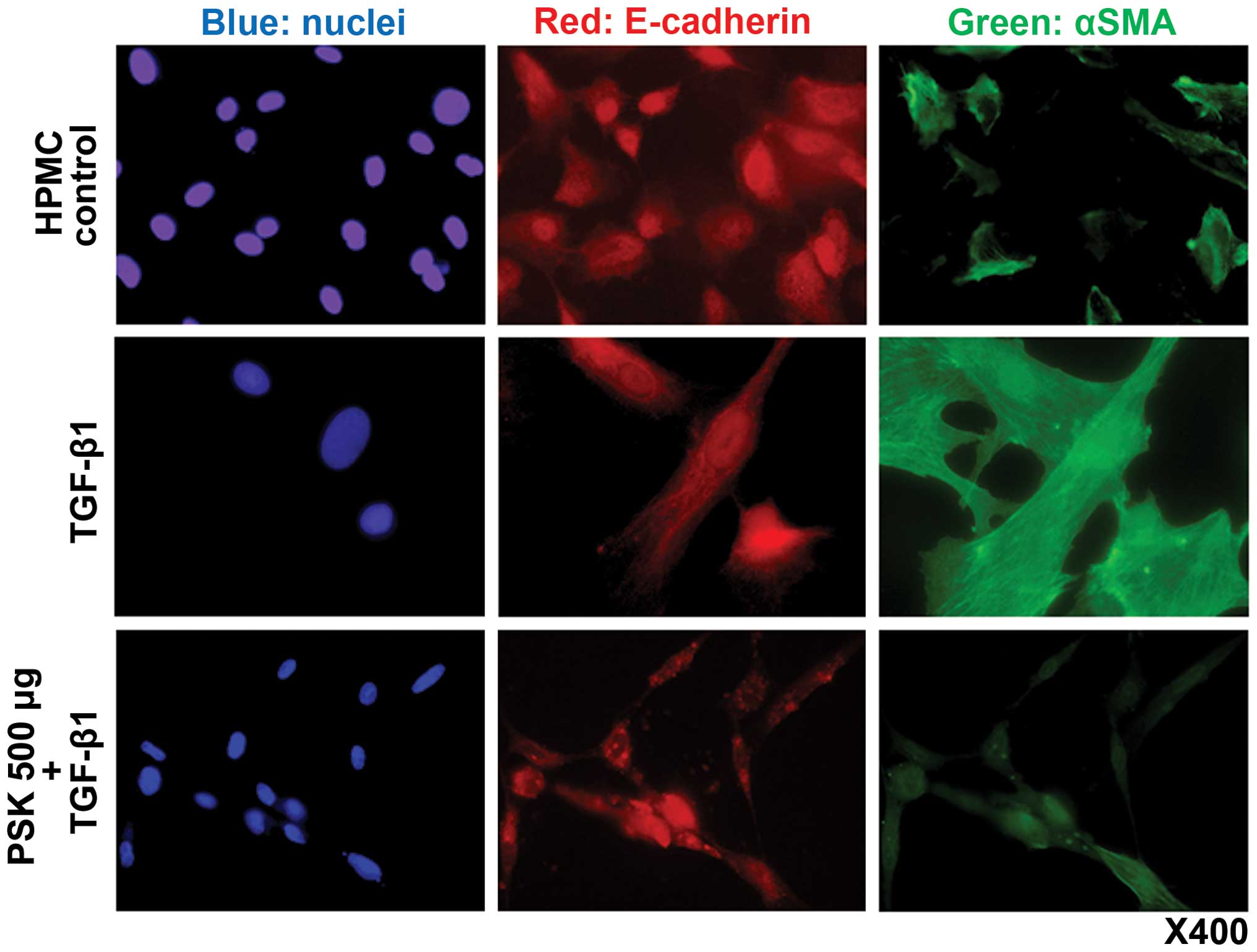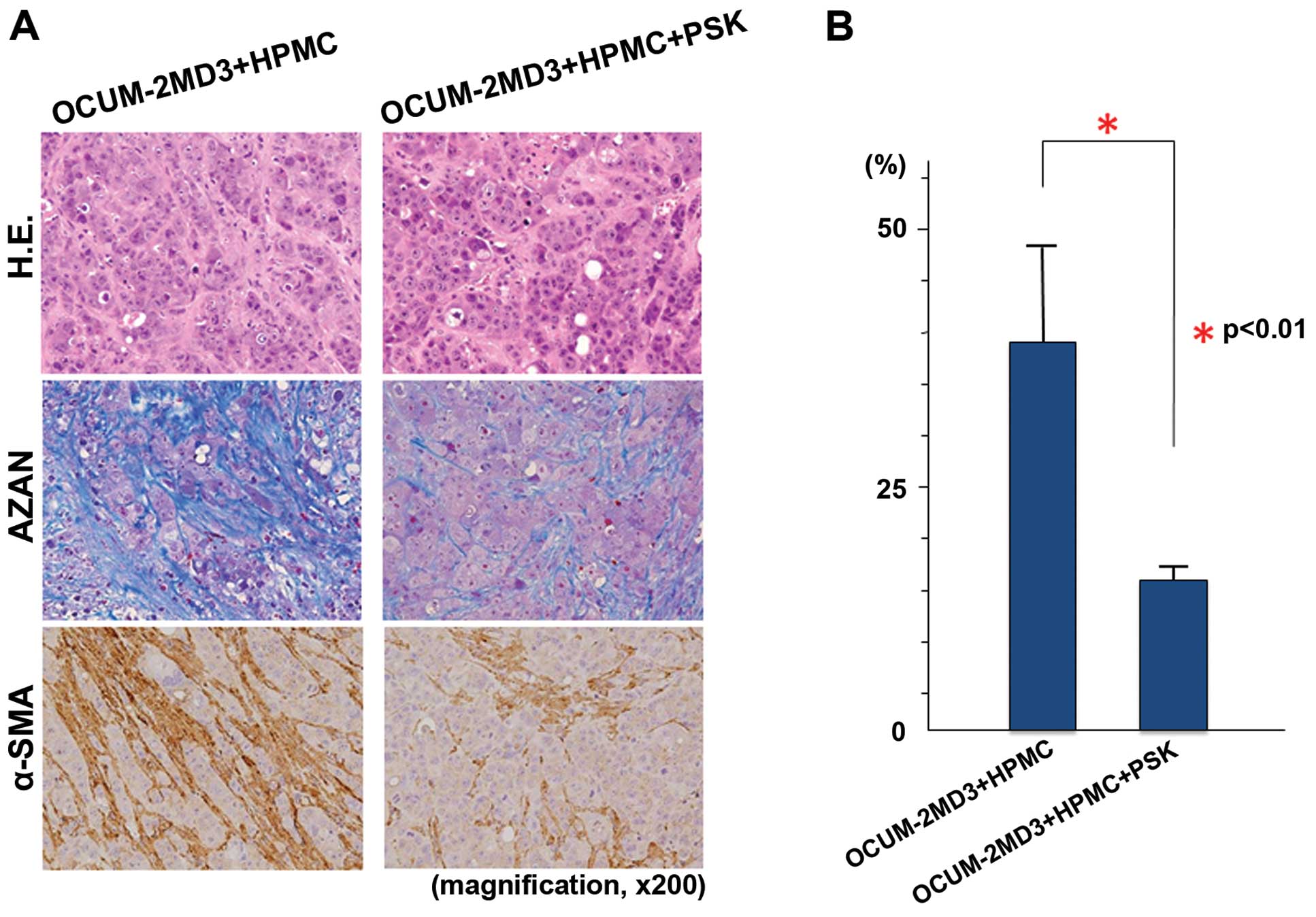|
1
|
Jemal A, Bray F, Center MM, Ferlay J, Ward
E and Forman D: Global cancer statistics. CA Cancer J Clin.
14:69–90. 2011. View Article : Google Scholar
|
|
2
|
Yamazaki H, Oshima A, Murakami R, Endoh S
and Ubukata T: A long-term follow-up study of patients with gastric
cancer detected by mass screening. Cancer. 63:613–617. 1989.
View Article : Google Scholar : PubMed/NCBI
|
|
3
|
Chen CY, Wu CW, Lo SS, Hsieh MC, Lui WY
and Shen KH: Peritoneal carcinomatosis and lymph node metastasis
are prognostic indicators in patients with Borrmann type IV gastric
carcinoma. Hepatogastroenterology. 49:874–877. 2002.PubMed/NCBI
|
|
4
|
Maruyama K, Kaminishi M, Hayashi K, et al:
Gastric cancer treated in 1991 in Japan: data analysis of
nationwide registry. Gastric Cancer. 9:51–66. 2006. View Article : Google Scholar : PubMed/NCBI
|
|
5
|
Fushida S, Oyama K, Kinoshita J, et al:
Intraperitoneal chemotherapy as a multimodal treatment for gastric
cancer patients with peritoneal metastasis. J Cancer Ther. 4:6–15.
2013. View Article : Google Scholar
|
|
6
|
Osugi H, Takada N, Takemura M, et al: Oral
fluoropyrimidine anticancer drug TS-1 for gastric cancer patients
with peritoneal dissemination. Oncol Rep. 9:811–815.
2002.PubMed/NCBI
|
|
7
|
Mai M, Sakata Y, Kanamaru R, et al: A late
phase II clinical study of RP56976 (docetaxel) in patients with
advanced or recurrent gastric cancer: a cooperative study group
trial (group B). Gan To Kagaku Ryoho. 26:487–496. 1999.PubMed/NCBI
|
|
8
|
Ohshima T, Yamada R, Hatori S, et al:
Pharmacokinetics of S-1 in patients with peritoneal dissemination
of gastric cancer. Oncol Rep. 16:361–366. 2006.
|
|
9
|
Naitoh H, Kawaguchi A, Yamamoto H, et al:
Measurement of docetaxel concentration in blood and ascites after
drip infusion into each vessel and intraperitoneal cavity of
gastric cancer. Gan To Kagaku Ryoho. 31:2031–2034. 2004.(In
Japanese). PubMed/NCBI
|
|
10
|
Ishigami H, Kitayama J, Kaisaki S, et al:
Phase II study of weekly intravenous and intraperitoneal paclitaxel
combined with S-1 for advanced gastric cancer with peritoneal
metastasis. Ann Oncol. 21:67–70. 2010. View Article : Google Scholar
|
|
11
|
Fushida S, Kinoshita J, Kaji M, et al:
Phase I/II study of intraperitoneal docetaxel plus S-1 for the
gastric cancer patients with peritoneal carcinomatosis. Cancer
Chemother Pharmacol. 71:1265–1272. 2013. View Article : Google Scholar : PubMed/NCBI
|
|
12
|
Tsukada T, Fushida S, Harada S, et al:
Low-dose paclitaxel modulates tumour fibrosis in gastric cancer.
Int J Oncol. 42:1167–1174. 2013.PubMed/NCBI
|
|
13
|
Fuyuhiro Y, Yashiro M, Noda S, et al:
Cancer-associated orthotopic myofibroblasts stimulate the motility
of gastric cartinoma cells. Cancer Sci. 103:797–805. 2012.
View Article : Google Scholar : PubMed/NCBI
|
|
14
|
Terai S, Fushida S, Tsukada T, et al: Bone
marrow derived ‘fibrocytes’ contribute to tumor proliferation and
fibrosis in gastric cancer. Gastric Cancer. May 4–2014.(Epub ahead
of print). View Article : Google Scholar
|
|
15
|
Tsukada T, Fushida S, Harada S, et al: The
role of human peritoneal mesothelial cells in the fibrosis and
progression of gastric cancer. Int J Oncol. 41:476–482.
2012.PubMed/NCBI
|
|
16
|
Coussens LM and Werb Z: Inflammation and
cancer. Nature. 420:860–867. 2002. View Article : Google Scholar : PubMed/NCBI
|
|
17
|
Tsukagoshi S, Hashimoto Y, Fujii G,
Kobayashi H, Nomoto K and Orita K: Krestin (PSK). Cancer Treat Rev.
11:131–155. 1984. View Article : Google Scholar : PubMed/NCBI
|
|
18
|
Matsunaga K, Hosokawa A, Oohara M, Sugita
N, Harada M and Nomoto K: Direct action of a protein-bound
polysaccharide, PSK, on transforming growth factor-beta.
Immunopharmacology. 40:219–230. 1998. View Article : Google Scholar : PubMed/NCBI
|
|
19
|
Yamaguchi Y, Minami K, Ohshita A,
Kawabuchi Y, Noma K and Toge T: Enhancing effect of PS-K on
IL-2-induced lymphocyte activation: possible involvement of
antagonistic action against TGF-beta. Anticancer Res. 24:639–647.
2004.PubMed/NCBI
|
|
20
|
Zhang H, Morisaki T, Matsunaga H, et al:
Protein-bound polysaccharide PSK inhibits tumor invasiveness by
down-regulation of TGF-beta1 and MMPs. Ciin Exp Metastasis.
18:343–352. 2000.
|
|
21
|
Ono Y, Hayashida T, Konagai A, et al:
Direct inhibition of the transforming growth factor-β pathway by
protein-bound polysaccharide through inactivation of Smad2
signaling. Cancer Sci. 103:317–324. 2012. View Article : Google Scholar
|
|
22
|
Yung S, Li FK and Chan TM: Peritoneal
mesothelial cell culture and biology. Perit Dial Int. 26:162–173.
2006.PubMed/NCBI
|
|
23
|
Reagan-Shaw S, Nihal M and Ahmad N: Dose
translation from animal to human studies revisited. FASEB J.
22:659–661. 2008. View Article : Google Scholar
|
|
24
|
Evans RA, Tian YC, Steadman R and Philips
AO: TGF-beta1-mediated fibroblast-myofibroblast terminal
differentiation - the role of Smad proteins. Exp Cell Res.
282:90–100. 2003. View Article : Google Scholar : PubMed/NCBI
|
|
25
|
Shinto O, Yashiro M, Kawajiri H, et al:
Inhibitory effect of a TGFbeta receptor type-I inhibitor, Ki26894,
on invasiveness of scirrhous gastric cancer cells. Br J Cancer.
102:844–851. 2010. View Article : Google Scholar : PubMed/NCBI
|
|
26
|
Ly ZD, Wang HB, Dong Q, et al: Mesothelial
cells differentiate into fibroblast-like cells under the scirrhous
gastric cancer microenvironment and promote peritoneal
carcinomatosis in vitro and in vivo. Mol Cell Biochem. 377:177–185.
2013. View Article : Google Scholar
|
|
27
|
Roberts AB and Sporn MB: The transforming
growth factor-βs. Peptides, Growth Factors and Their Receptors Part
I. Sporn MB and Roberts AB: Springer-Verlag; Berlin: pp. 419–472.
1990, View Article : Google Scholar
|
|
28
|
Oba K, Teramukai S, Kobayashi M, Matsui T,
Kodera Y and Sakamoto J: Efficacy of adjuvant immunochemotherapy
with polysaccharide K for patients with curative resections of
gastric cancer. Cancer Immunol Immunother. 56:905–911. 2007.
View Article : Google Scholar
|
|
29
|
Sakuramoto S, Sasako M, Yamaguchi T, et
al: Adjuvant chemotherapy for gastric cancer with S-1, an oral
fluoropyrimidine. N Engl J Med. 357:1810–1820. 2007. View Article : Google Scholar : PubMed/NCBI
|
|
30
|
Fujii M, Kochi M and Takayama T: Recent
advances in chemotherapy for advanced gastric cancer in Japan. Surg
Today. 40:295–300. 2010. View Article : Google Scholar : PubMed/NCBI
|
|
31
|
Ueda Y, Fujimura T, Kinami S, et al: A
randomized phase III trial of postoperative adjuvant therapy with
S-1 alone versus S-1 plus PSK for stage II/IIIA gastric cancer:
Hokuriku-Kinki Immunochemotherapy Study Group-Gastric Cancer
(HKIT-GC). Jpn J Clin Oncol. 36:519–522. 2006. View Article : Google Scholar : PubMed/NCBI
|

















